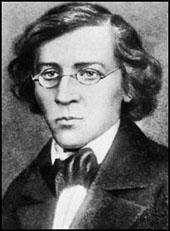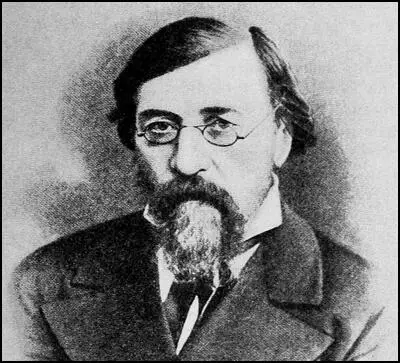Nikolai Chernyshevsky

Nikolai Chernyshevsky, the son of a priest, was born in Saratov, Russia, on 12th July 1828. After graduating from the University of St Petersburg he taught in Saratov.
Chernyshevsky became a journalist and in 1855 joined the staff of Sovremennik (The Contemporary) where he wrote about literature and politics. In his articles Chernyshevsky criticized liberalism, believing it served the interests of the rich and powerful.
Chernyshevsky, like Alexander Herzen, argued that the peasants should organize themselves into communes and rebel against the power of the large landowners. He believed that the Russian peasant provided the hope of establishing an egalitarian socialist order.
Karl Marx described Chernyshevsky as "the great Russian scholar and critic who has in a masterly way exposed the bankruptcy of bourgeois economics". However Chernyshevsky was not a Marxist and was more influenced by socialists such as Charles Fourier.
Chernyshevsky was hopeful that Alexander II would reform Russian society but by 1861 was thoroughly disillusioned and wrote to Alexander Herzen that "liberal landowners, liberal writers, liberal professors lull you with hopes in the progressive aims of our government". He added that "everyone sincerely loving Russia has come to the conclusion that only by force could human rights be seized by the people from the tsar's grip."

In July, 1862, Chernyshevsky was arrested and imprisoned for criticizing the established order in Russia. While in prison Chernyshevsky wrote the utopian novel, What's to be Done? The manuscript was smuggled out of prison and published. The novel became a popular book with students and influenced the founding of the Land and Liberty group.
The publication of What's to be Done? resulted in Chernyshevsky being sentenced to seven years' forced labour in Siberia. By this time he was released in 1883 his views were considered to be very moderate when compared to those such as Mikhail Bukunin and Sergei Nechayev.
Nikolai Chernyshevsky died on 17th October 1889.

